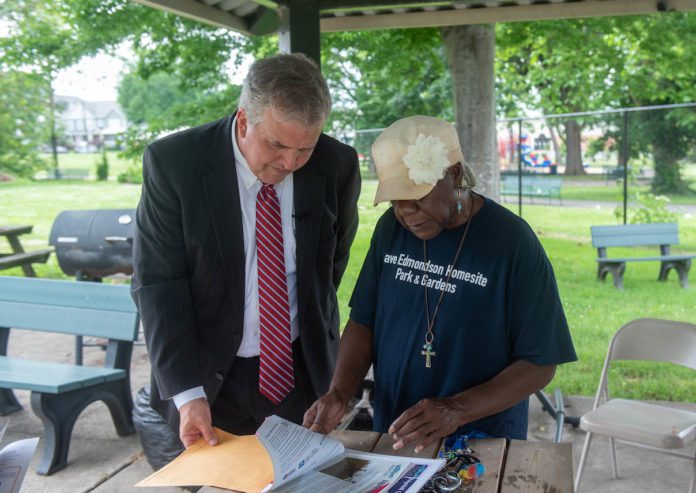Announced to the Belmont campus in early June, the new Belmont Accelerator for Social Innovation Collaboration (BASIC) is designed to bring together University faculty, staff, students and community partners in faith-based social innovation to impact local communities, particularly children 0-8. The University recently announced the awarding of the first BASIC grants to support two initiatives, one focused on strategically engaging root causes of poverty in the Edgehill community, and another partnering with a nonprofit in Antioch to serve local immigrants and refugees with vital social services.
Belmont President Dr. Greg Jones said, “At Belmont, we aim to be a catalyst for hope for our students and the broader community. We want to be frontrunners in the quest for innovative solutions to what are commonly called ‘wicked problems,’ the pervasive and complex issues in our society that often seem beyond reach. The BASIC initiative gives our extremely capable and passionate faculty, staff and students the resources they need to work together with community partners to create effective and innovative approaches to such problems in Middle Tennessee. These first two grants represent what I hope to be the first of many collaborative and impactful efforts that will arise from BASIC.”
Through BASIC-inspired initiatives, Belmont aims to contribute to finding effective, efficient, sustainable and just approaches to complex problems in the world. Examples of such problems could include everything from intergenerational poverty and lack of educational opportunity to health care inequities and drug abuse, and beyond. A requirement of all BASIC proposals, the preliminary initiatives will involve three or more disciplines across Belmont colleges or administrative areas, as complex problems demand interdisciplinary thinking and diverse perspectives.
The first two funded proposals, which will each receive approximately $20,000 in University support, seek to impact children and families in the Edgehill neighborhood near Belmont’s campus and in the Antioch suburb:
EDGEHILL—Faculty and staff in Belmont’s social work, education and community relations areas will work with Carter Lawrence Elementary School’s Extended Learning Program, the United Way Edgehill Family Resource Center, Salama Urban Ministries and The Store, among others, to pilot an extended learning and family support initiative for 25 families in the Edgehill area. Activities will include a 2Gen approach that offers academic, creative arts and wellness enrichment to engage children and their families.
Team Leads:
Sabrina Sullenberger, Professor of Social Work
Joyce Searcy, Director of Community Relations
Mona Ivey Soto, Associate Professor of Education
ANTIOCH—Business, occupational therapy and honors faculty will work with ‘The Branch’ of Nashville, the Antioch United Methodist Church and other area community partners to provide English literacy, nutrition education, workforce development, citizenship access, healthcare options and more to Branch participants, many of whom are refugees or immigrants. Activities will include designing a community center, reimagining strategy for food distribution and building models and curriculum for services.
Team Leads:
John Gonas, Associate Professor of Finance
Kimberlee Entsminger, Professor of Chemistry
Debra Gibbs, Associate Professor of Occupational Therapy
Sara Camp, Instructor of Nursing
Dr. Amy Crook, Belmont’s vice president for transformative innovation, character and purpose, is overseeing the BASIC initiative and working with faculty, staff and students from across Belmont’s colleges and departments on additional grant proposals. “It’s no surprise to see the enthusiasm on Belmont’s campus for the BASIC initiative, as demonstrated by the number of attendees at our summer interest sessions and the number of proposals being generated. This campus is full of dedicated faculty and staff who care deeply about making a long-term impact inside and outside the classroom. I’m excited to see how these first funded BASIC grants connect Belmont more deeply to our region, energize our students’ co-curricular experiences and empower these communities with the resources to tackle complex problems that lead toward sustainable change.”
The second round of BASIC grant proposals are due Nov. 15 with awards for selected initiatives anticipated to be announced before the end of the year.



